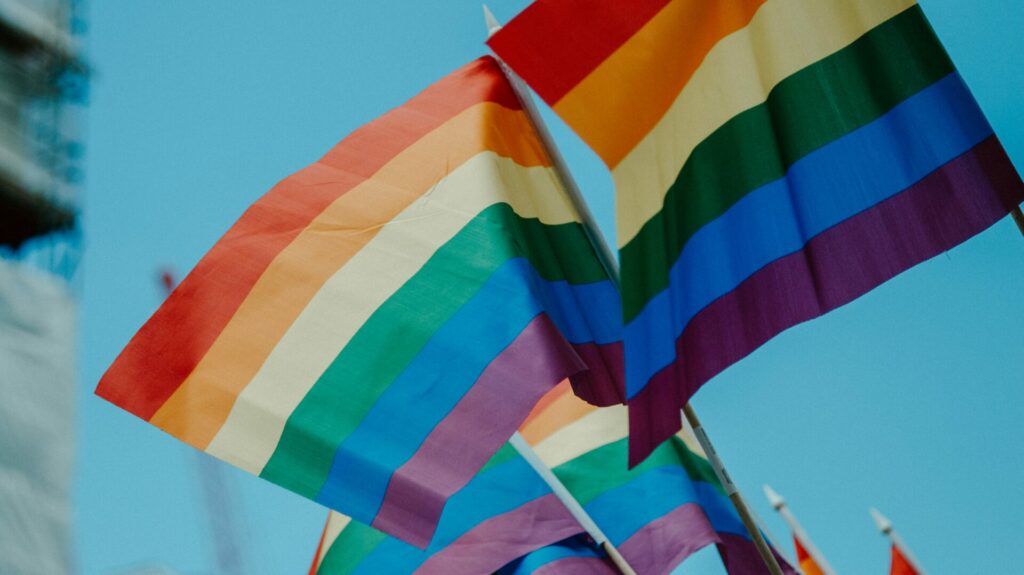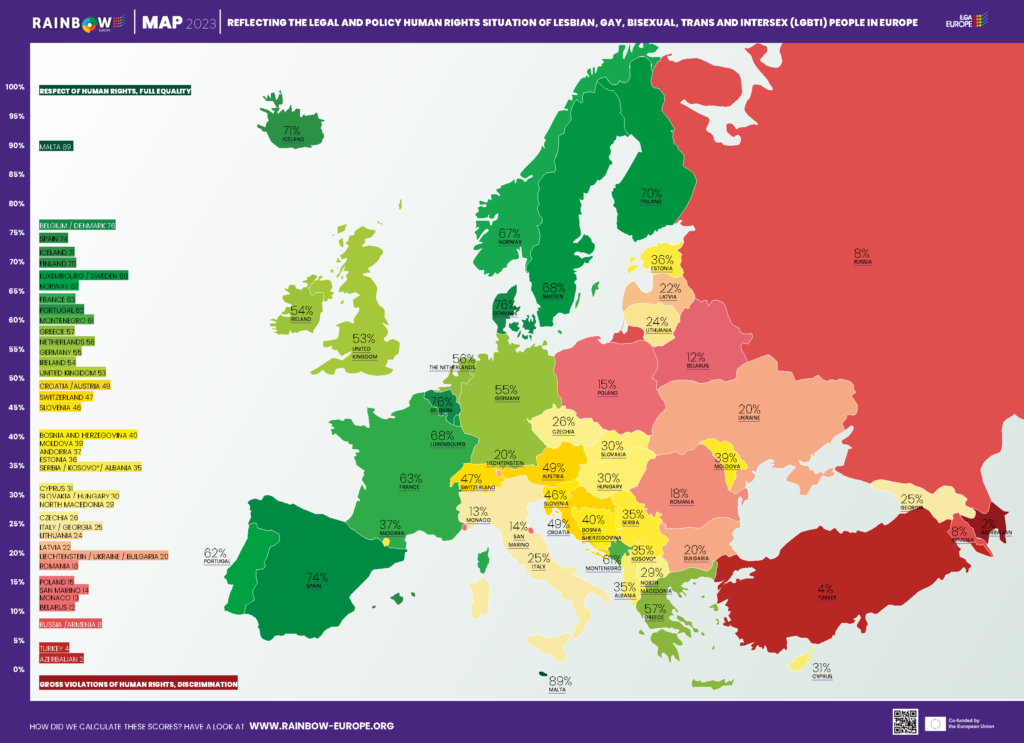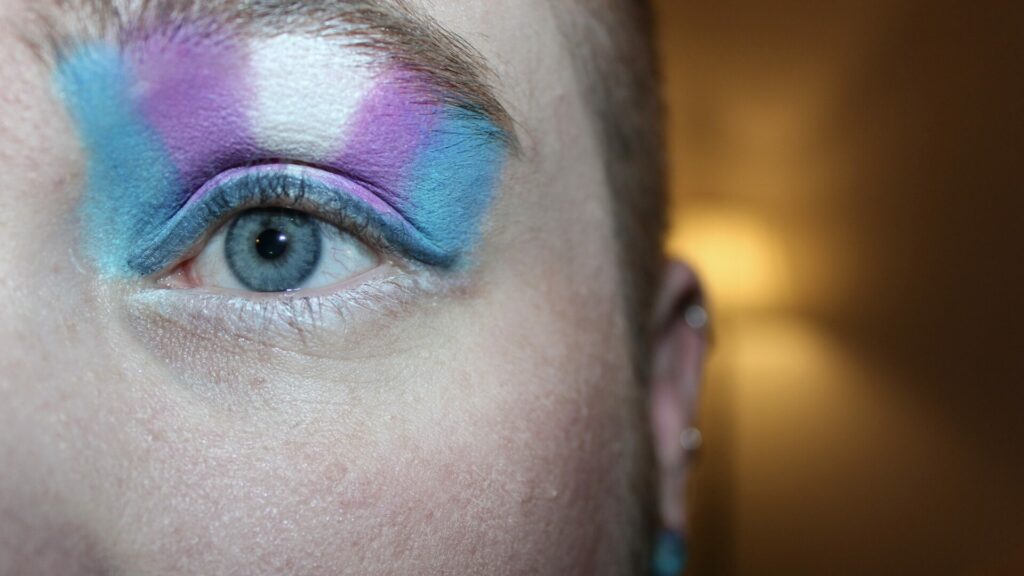UK falls 3 places in Europe LGBTQ+ rights rankings
The nation was top of the ILGA rankings in 2015

The UK has fallen three further places in the International Lesbian, Gay, Bisexual, Trans and Intersex Association’s (ILGA) rankings.
The advocacy group’s ‘Rainbow Map’ benchmarks 49 European countries on their legal and policy situation for LGBTQ+ people.
The data comes from examining advances made of on-the-ground situations at national level country-by-country between January and December 2022.
This shows that the UK has gone from 14th place in 2022, to 17th in 2023.
It’s despite the nation having been number one on the list back just under a decade ago.

This is amid a time when homophobic and transphobic hate crime is on the rise, with threats to LGBTQ+ rights elsewhere.
Last month, the EHRC published guidance to Kemi Badenoch, the women and equalities minister, regarding the definition of ‘sex’ in the 2010 Equality Act.
They suggested redefining ‘sex’ as ‘biological sex’. This would exclude trans people from single-sex spaces, support groups, and more. It is a suggestion at this point.
Mermaids, the trans charity, said it was “extremely distressing” to see the EHRC “seeking to strip trans people’s rights.”

Top for 2023 is Malta, at 89% in regards to respect of human rights and total equality for the community.
More of the most LGBTQ+ friendly countries include Belgium and Denmark (76%), Spain (74%) and Iceland (71%).
Just below the UK are the likes of Austria, Switzerland, Slovenia and Croatia, but they all increased their score this year.
In response to the findings, charity Stonewall noted: “On this trajectory, the UK could be out of the Top 20 in a couple of years.”
The ranking looks at categories including asylum, civil society space, intersex bodily integrity and legal gender recognition.
Hate crime and hate speech, family and equality and non-discrimination are also considered by the organisation.
